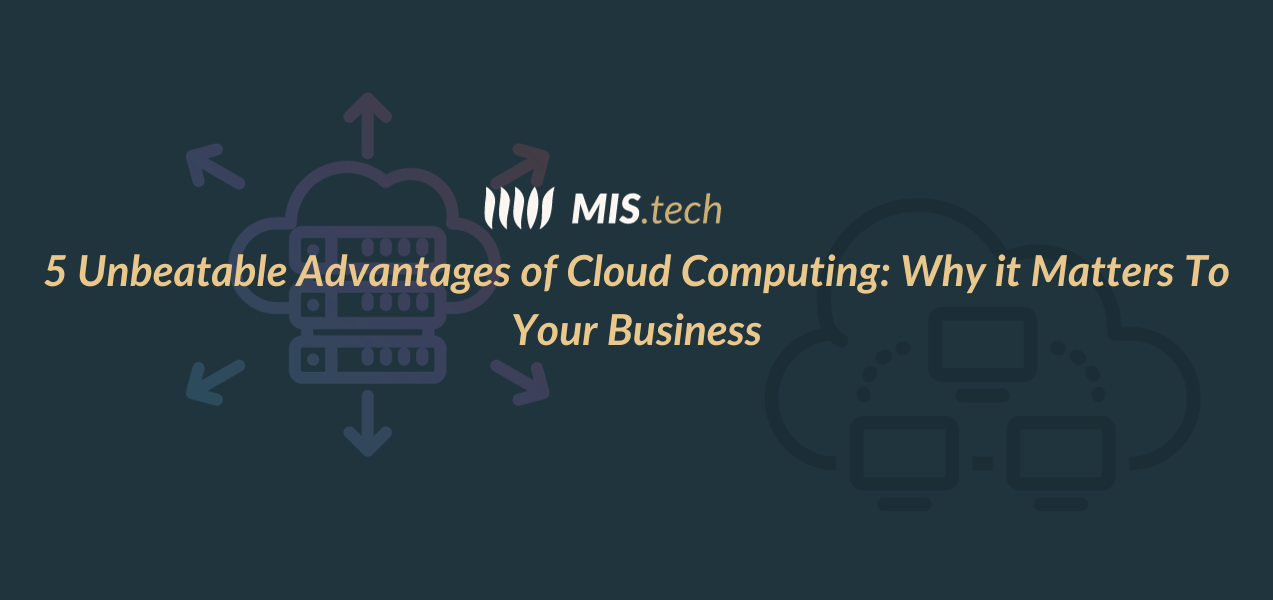Let’s discuss some key advantages of cloud computing and how cloud computing can play an important role in scaling your business.
Cloud Computing: Quick Intro
Cloud computing allows businesses to rent (or borrow) IT infrastructure such as data centers, servers, hardware, and software solutions. What businesses need to use this service is a strong internet connection which will allow them to store, retrieve, and access data. These cloud-based services charge a monthly fee which is determined by how much computing power a business needs. Amazon Web Services (AWS), Azure, Google Cloud, IBM Cloud, and Oracle are some of the companies providing services in the cloud industry.
Private cloud, public cloud, and hybrid cloud are the three main types of cloud computing infrastructure. Each of these cloud deployment models has four distinct services, which are software as a service (SaaS), infrastructure as a service (IaaS), platform as a service (PaaS), and serverless computing.
Employing cloud providers is beneficial to modern businesses because they are able to reduce IT costs. It also allows these businesses to use the leverage these services provide to achieve their business goals. The advantages using cloud computing will give your organization includes data security, storage, and servers. In this article you will learn the advantages and disadvantages of cloud infrastructure for your company.
Advantages of Using Cloud Computing
There are numerous advantages associated with renting cloud storage and other cloud computing infrastructure. Here are the top advantages of using a cloud platform for your IT needs:
Cost Savings
Your business will save money as buying and installing your personal computing resources is more expensive than cloud technology. The cloud offers a pay as you use service model where companies only pay for the computing used and not the entire infrastructure. This saves businesses money as they do not require thousands of dollars on hardware they will not use to full capacity.
Strategic Edge
Adopting cloud technology to meet business demands gives your business an edge over its competitors. You can access services anywhere in the world from a device with an internet connection. Your business will stay ahead of those not enjoying cloud computing benefits.
High Speed
Cloud computing is a real-time service delivered via the internet which is why it is quick and fast. The speed of this service is powered by the internet and the lack of physical hardware constraints. It is also easy for cloud users to spin up and retire instances during cloud application development, which makes it easy to test, implement, and launch new ideas.
Back-up and Restore Data
Businesses can properly manage their data and storage using the cloud. They can seamlessly back up and restore lost data when there are problems with the local storage. Storing data on the cloud protects valuable information in case of emergencies. It also makes it easy for employees to immediately retrieve relevant data from the cloud. The cloud allows you to protect your data from hardware failures, hacks, and user errors.
Automatic Software Integration
Integrating a third-party cloud computing service provider with your existing IT infrastructure is easy to do. It does not require a complex setup, and your organization’s staff can begin working with the basics of cloud computing knowledge.
Reliability
Cloud computing offers reliability that may be unavailable if you manage your IT needs personally. Switching to cloud computing outsources the responsibility to cloud computing companies, which have the staff to keep their services online 24/7. They also have support staff that handle all complaints if your business needs an IT partner or in-house personnel with cloud computing experience.
Mobility
Switching to the cloud improves the mobility of your business because you have fewer physical IT demands. You can access the cloud via good internet connectivity anywhere you are. Therefore, your business becomes hardware-light, making it easier for your staff to work remotely using the internet. Your business becomes more flexible as you do not need to
Unlimited Storage Capacity
Cloud computing gives your business virtually unlimited storage space. You can increase your storage space as much as you want without physically buying hardware or worrying about the space to keep the hardware. The cloud delivers a novel solution that allows businesses to access computing servers and data storage without physical limitations.
Collaboration
One of the main advantages of the cloud is the ability to make data available anywhere and anytime. These services allow improved collaboration among staff as they can share and work on projects seamlessly. All users within a cloud computing environment can update, store, change, and retrieve data.
Quick Deployment
The cloud allows businesses to launch and deploy new services faster. The constraints that limit personally hosted IT infrastructure do not apply to cloud utilities. Therefore, services that are hosted on the cloud are more scalable than others, and companies can create, test, and deploy new solutions quickly.
Other Important Advantages of Cloud Computing
Other important benefits of cloud computing include cloud security, low maintenance costs, cheap computing fees, and business insights. These benefits help businesses that work in a cloud environment get maximum value for money spent.
Disadvantages of Cloud Computing
Using cloud service models has numerous advantages, but they also have drawbacks. This section will examine some of the problems you may experience when using the cloud for your business needs.
Performance Can Vary
Public cloud services and other similar cloud infrastructure are harder to customize to meet specific business needs. This makes performance vary as many variables are out of your control. Businesses are advised to use private cloud services as they have better customization options that can be edited to suit different purposes and guarantee performance.
Technical Issues
Cloud services develop various technical issues at different times, affecting overall performance. These issues occur for many reasons; with expert help, they can be easier to navigate. Some of these issues include configuration errors and a lack of security patches.
Security Threats in the Cloud
Cloud services are provided by third-party companies that control the infrastructure you use when you access cloud computing. You should understand that your business data is being sent to an external party with storage that you do not fully control. Although these companies use secure networks and employ security measures, there is a risk of being hacked.
Downtime
Cloud services also have periods of downtime, which can happen for various reasons. Sometimes, providers want to perform routine maintenance, or some other fault may be affecting their services. When these downtimes occur, you will be separated from your company’s data until the services are back up.
Internet Connectivity
Cloud computing uses the internet to provide its users with various services depending on their needs. Therefore, the cloud relies heavily on a strong internet service to deliver reliably. If you do not have access to internet connectivity, you will be locked out of your data and other services supplied by the cloud provider.
Lower Bandwidth
Cloud infrastructure is primarily an online service as data and information are transmitted using an internet connection. When businesses have Low-bandwidth connections it affects the quality of their cloud computing experience. Hence, you will need reliable internet with bandwidth that meets your needs.
Lack of Support
The support you receive depends entirely on your cloud service provider. This is why you must choose a robust support package provider. This is important if you do not have a resident cloud expert in-house or have yet to contract an external IT service provider.
Conclusion
As businesses begin the cloud journey, it is important for them to understand the cloud framework and the types of services they provide. The knowledge of these frameworks allow businesses to understand the benefits of using the cloud and how to harness them. Although there are drawbacks, they can be managed by having the right support team.


